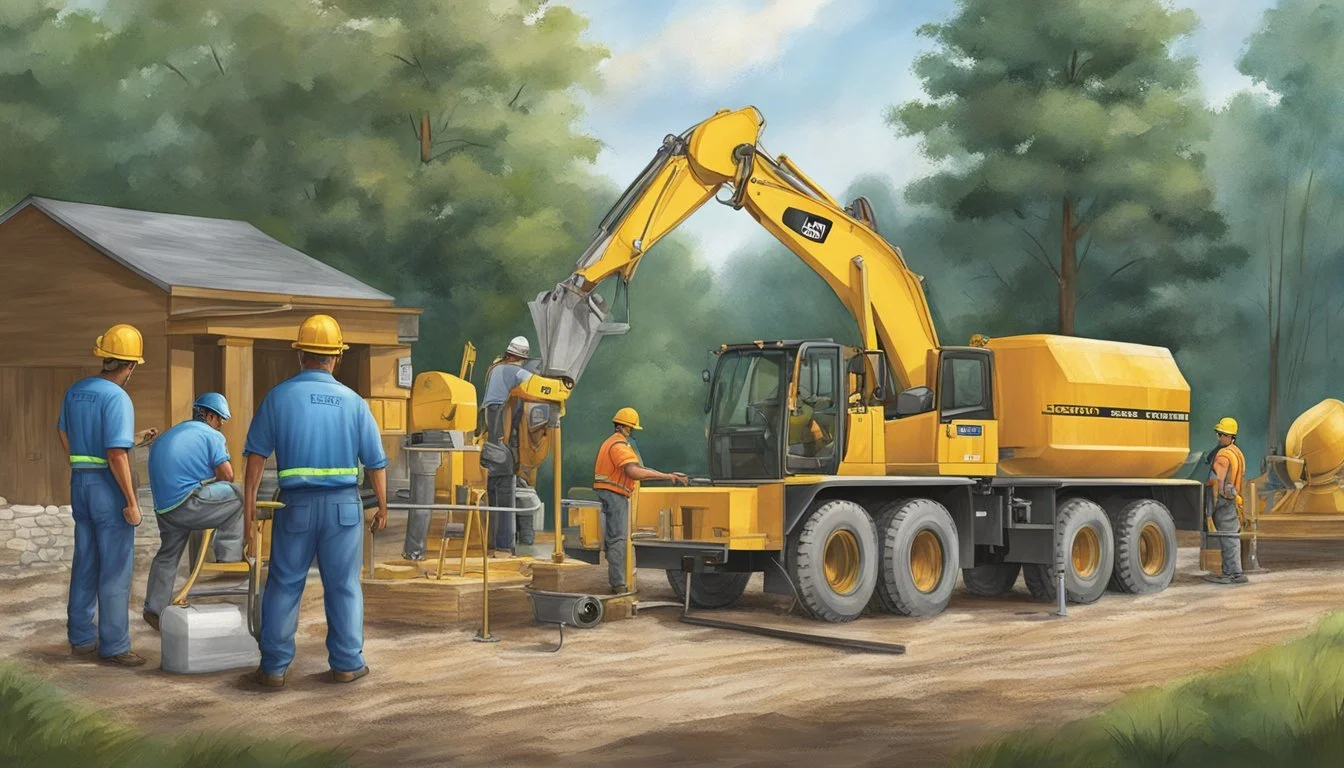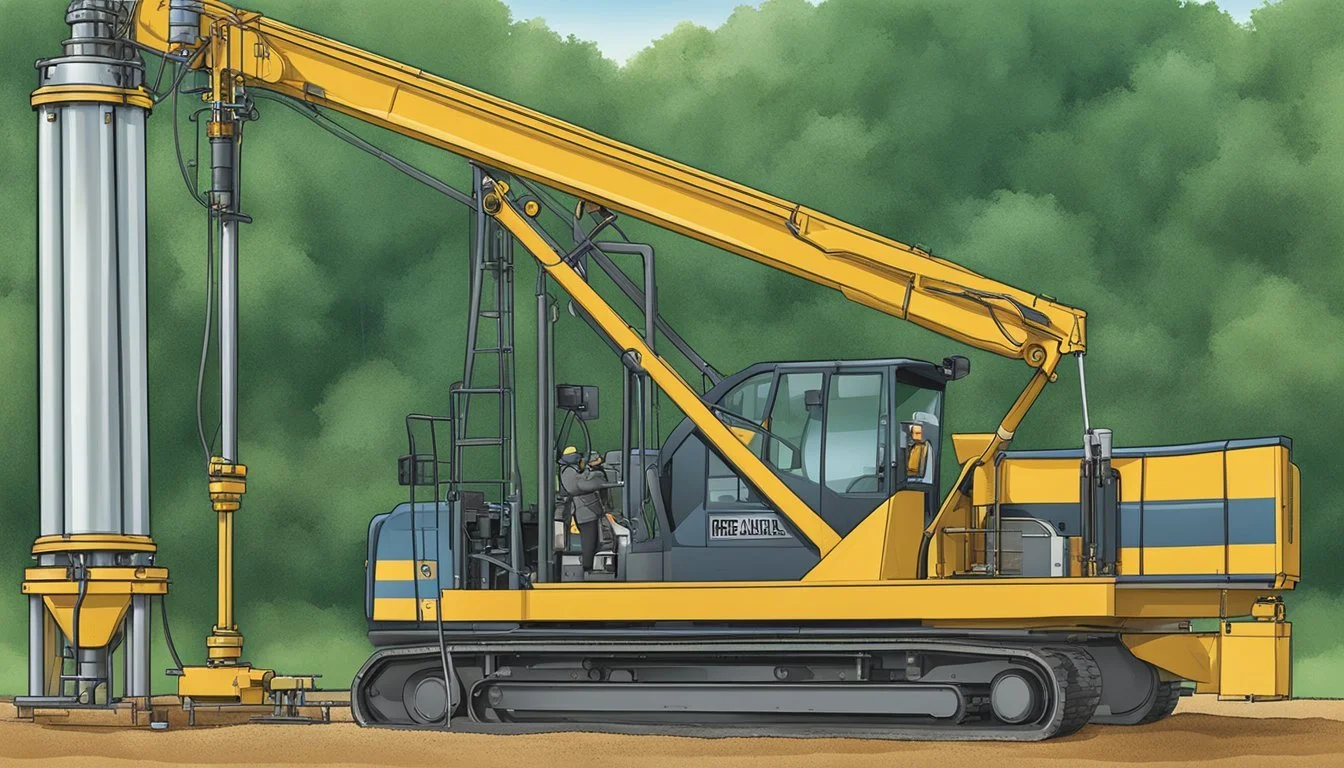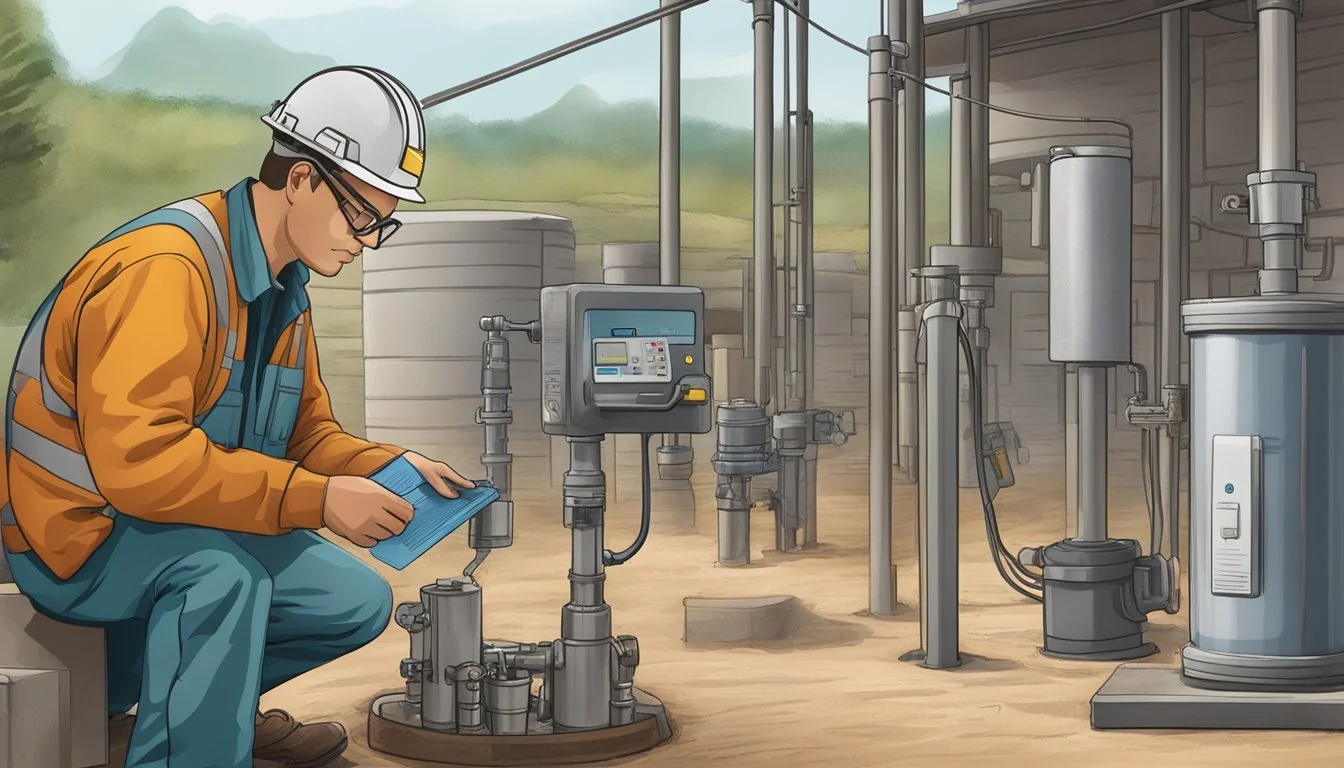Kentucky Water Well Regulations
An Essential Compliance Guide
Water wells are a crucial component of Kentucky's infrastructure, supplying residents with access to groundwater for drinking, irrigation, and industrial purposes. The state's focus on safeguarding groundwater quality is reflected in the regulations pertaining to the construction, modification, and abandonment of water supply wells. These regulations ensure that the extraction of groundwater does not compromise the water quality, thereby protecting the health and well-being of Kentucky's communities and its environment
Kentucky mandates that only certified well drillers undertake the construction of water supply wells. These professionals are required to adhere to stringent guidelines that dictate the practices and standards for well construction. The guidelines are designed to prevent contamination of the water supply and to ensure the integrity and performance of the wells.
The Commonwealth of Kentucky places considerable emphasis on these regulations, as they are pivotal to maintaining public health and environmental stewardship. The assurance of clean and safe drinking water for all Kentuckians is a priority that guides the rules and standards administered by the state. Compliance with these regulations is not just about legal adherence but also about a community's commitment to sustainable water resource management.
Regulatory Framework
In Kentucky, water well regulations are established to ensure that water sources are protected and managed effectively. These regulations are designed not only to protect environmental and public health but also to regulate the construction, maintenance, and abandonment of water wells throughout the state.
Administrative Regulation
The Kentucky Administrative Regulation stipulates the rules governing water quality and water well standards. They have been enacted under the authority of statutes like KRS 224.10-100 and 224.70-100, which mandate the creation of standards to safeguard water quality. These regulations are essential for environmental stewards and water managers in achieving the goal of preserving and improving the state's water resources.
Certification Requirements
To operate as a water well driller in Kentucky, one must adhere to specific certification requirements. These requirements include passing the Kentucky Water Well Certification Examination, the National Ground Water Association General Exam, and additional specialty examinations relevant to the drilling method. Certification ensures that practitioners are qualified and that water well construction practices meet established safety and quality standards.
Kentucky Division of Water
The Kentucky Division of Water plays a pivotal role in setting and enforcing water regulations. This entity is responsible for the implementation of policies that protect the Commonwealth's aquatic resources. It oversees the certification of water well drillers and ensures that well construction practices conform to the regulatory guidelines. One of its significant functions is to ensure that water supply wells are suitably constructed, modified, and abandoned to prevent contamination and maintain water integrity.
Construction Guidelines
In Kentucky, water well construction is subject to specific regulations to ensure both the integrity of the well structure and the protection of groundwater resources. Detailed standards govern every aspect of the process, from well design to site evaluation, to prevent contamination.
Well Design and Casing
Water well construction in Kentucky requires that well design and casing techniques are applied to maintain structural integrity and prevent contaminants from entering the water supply. Casing must be of durable material, typically steel or PVC, and properly seated into the bedrock or otherwise anchored to prevent entry of surface water and contaminants. The Kentucky Administrative Regulation for Water Supply Well Construction outlines the minimum standards for these practices.
Contaminant Prevention
To protect water quality, the construction process includes measures specifically for contaminant prevention. Requirements include proper sealing of the well casing and the use of sanitary seals. Setback distances are mandated from potential contamination sources, and guidelines exist for the safe handling and storage of any hazardous materials on site. By adhering to these regulations, constructors significantly reduce the risk of groundwater contamination.
Site Evaluation
Site evaluation plays a crucial role in water well construction. Constructor must choose locations at a safe distance from known sources of contamination such as septic tanks and agricultural runoff. They should also assess the surrounding area for potential future risks. The University of Kentucky General Well Construction Regulations emphasize the importance of considering both current and future environmental impacts on the well and groundwater system.
By following these stringent guidelines, Kentucky ensures that the process of constructing water wells protects both public health and the natural environment.
Well Driller Responsibilities
In Kentucky, well drillers are mandated to adhere to stringent regulations to ensure the safety and quality of water wells. They are legally required to obtain certification and maintain meticulous records of their operations.
Certified Driller Regulations
Every Water Well Driller in Kentucky must be certified before executing any activities related to well drilling, modification, or abandonment. The Certified Well Driller is obligated to construct and modify wells in strict compliance with state construction regulations as stated in 401 KAR 6:310. This comprises adherence to proper methods for drilling, including cable tool and air rotary techniques. In addition, significant importance is placed on ensuring the structural integrity of the wells, and protecting groundwater from contamination.
For the construction of monitoring wells, drillers must follow the standards outlined in 401 KAR 6:350. Drillers are also responsible for supervising their assistants, ensuring all practices meet the regulatory requirements. Only certified individuals may construct, modify, or abandon monitoring wells, as indicated by KRS 223.425 and 401 KAR 6:320.
Reporting and Record Keeping
Comprehensive reporting and detailed record-keeping are vital responsibilities of Certified Well Drillers. Drillers are required to maintain the Uniform Kentucky Well Construction Record, which is a standardized form documenting pertinent details of the well construction process. The records must encompass all aspects of the construction, including but not limited to the location, depth, casing details, and materials used.
These records play a critical role in preserving the history of each water well and ensuring traceability throughout its lifecycle. They must be submitted to the Kentucky Energy and Environment Cabinet for review. Adhering to these protocols is essential not only for compliance with state law but also for safeguarding the state's water resources.
Maintenance and Modification
For water wells in Kentucky, regulations specify that any repair, modification, or maintenance must be conducted by individuals certified in accordance with state standards. Compliance ensures that wells operate safely and effectively.
Repair and Alteration
When a water well undergoes repair or alteration, Kentucky regulations mandate that these tasks are performed by certified professionals. For example, Kentucky Administrative Regulations demand well repairs and alterations to comply with stipulated standards to prevent contamination and ensure structural integrity.
Well Maintenance
Regular maintenance of water wells is critical for prolonged functionality and water quality. State guidelines set forth specific practices that well owners should follow. According to the Division of Water in Kentucky, well maintenance is key to impede problems such as water contamination and to promote the lifespan of the well's structure.
Each of these processes—repair, alteration, and maintenance—are vital in upholding the high standards set for water well safety and construction in Kentucky.
Abandonment and Environmental Protection
In Kentucky, the abandonment of water wells is a regulated activity, critical for maintaining groundwater integrity and preventing environmental contamination.
Well Abandonment Procedures
When a water well is no longer in use, it is crucial that it be properly abandoned to prevent contaminants from entering the groundwater supply. According to the Kentucky Energy and Environment Cabinet, the process involves a series of steps that must be followed to ensure that the well does not become a conduit for pollution. The well must first be disinfected; this involves determining the correct amount of chlorination and ensuring the chlorine solution circulates throughout the well.
The official guidelines for Well Abandonment Hand Dug Well provide instructions specific to hand-dug water wells. Moreover, a Kentucky Water Well Variance Request may be necessary if the abandonment process deviates from standard protocols. Documentation such as the Uniform Kentucky Well Maintenance and Plugging Record is required to be completed by a certified driller and submitted to the state within 60 days of abandonment.
Groundwater Protection Measures
Groundwater protection is a key priority, and it is essential that abandoned wells do not compromise groundwater quality or become pathways for surface contaminants. To maintain groundwater safety, the state mandates a Groundwater Protection Plan to be in place, which outlines practices for both active and inactive wells.
Monitoring well abandonment must be reported to the appropriate authorities using a specific record, thus ensuring accurate records are kept and can be referred to for future Technical Assistance or environmental assessments. The state's regulations, as referenced in the Title 401 Chapter 6 Regulation, encompass the abandonment of monitoring wells, addressing the proper way to seal them in accordance with established environmental standards. This underscores the commitment to protecting the environment and public health by enforcing steadfast rules around well abandonment and groundwater protection.
Water Quality Monitoring
Monitoring water quality is a crucial aspect of maintaining safe and clean water sources in Kentucky. This section details the state's regulations and procedures involved in monitoring wells and testing water quality.
Monitoring Wells
In Kentucky, monitoring wells are constructed, modified, or abandoned following specific regulations. The construction and maintenance of these wells are carried out by certified professionals. They are required to adhere to standards set by KRS 223.425 and 401 KAR 6:320 to ensure the integrity of water monitoring efforts. Monitoring wells are an essential part of the state's strategy to track water quality and detect any potential contamination early on.
Water Quality Testing
Water quality testing is not regulated by the EPA for private wells; however, the state of Kentucky places a strong emphasis on the testing of public water systems. Public water systems are bound by 401 KAR Chapter 8, which sets forth the compliance requirements to maintain water quality. Well owners are advised to consistently test water for bacteria, nitrates, and other contaminants to protect health and well-being. These tests are crucial for identifying potential issues and preventing water-borne diseases.
Special Circumstances
In the state of Kentucky, water well regulations address various special circumstances that may arise, including emergencies that threaten water supply, and the influence of agricultural activities on groundwater quality.
Emergency Considerations
In the event of an emergency, adequate measures are crucial to ensure that water supplies remain uncontaminated and available. The Kentucky Energy and Environment Cabinet provides guidance on how to protect water wells during floods or other events that can introduce harmful substances into water-bearing formations. Private well owners are encouraged to have contingency plans for testing and disinfection processes post-emergency.
Agricultural Impacts
Agricultural activities, especially involving livestock and crops, must be managed to prevent pesticides and fertilizers from infiltrating water supplies. The Kentucky Administrative Regulations specify construction and abandonment of water wells to limit contaminants, protecting both agricultural interests and groundwater quality. Regulations are in place to avert contamination of the water supply which could have a substantial impact on agricultural production and livestock health.
Additional Considerations
When considering the implementation of water wells in Kentucky, it is crucial to recognize the dual purpose they often serve – providing potable water for domestic use and supporting livestock needs. Adherence to the state's environmental compliance standards ensures the safety and sustainability of these vital resources.
Domestic and Livestock Uses
In Kentucky, individuals and entities constructing water wells for domestic and livestock purposes must follow specific regulations to ensure the provision of potable water. The construction, modification, or abandonment of these wells must be performed by certified professionals to guarantee safe drinking water and prevent contamination. Kentucky Administrative Regulations stipulate these standards to protect public health and animal welfare.
Certified water supply well driller requirement
Proper construction to prevent contamination
Environmental Compliance
The operation of septic systems and septic tanks in proximity to water wells is a matter of environmental compliance. There must be appropriate measures taken to avoid any seepage or contamination that could affect the groundwater sources in Kentucky. Entities requiring technical assistance for compliance can refer to guidelines provided by the Kentucky Energy and Environment Cabinet, ensuring systems are up to standard and do not jeopardize water quality.
Prevention of seepage into groundwater
Frequently Asked Questions
In Kentucky, regulations guide the placement, construction, maintenance, and documentation of water wells to ensure safe and sustainable groundwater resources.
What are the minimum distance requirements for water well placement in relation to property lines in Kentucky?
Kentucky regulations stipulate minimum distance requirements for water well placement from property lines. This ensures adequate space for maintenance and prevents contamination from adjoining properties.
How can one obtain the regulations for water well construction and maintenance in Kentucky?
The Kentucky Energy and Environment Cabinet provides information regarding water well construction and maintenance regulations.
What is the average depth of water wells in Kentucky, and does this vary by region?
Water well depths in Kentucky vary by region due to geological differences. Accessing well records can help determine average depths in specific areas.
What is the process and typical cost of drilling a water well in Kentucky?
The drilling process involves surveying, permitting, and construction, with costs varying by location and well depth. It's advisable to consult local drilling professionals for accurate estimates.
Are there specific guidelines for sourcing water from surface bodies, like creeks or rivers, for private wells in Kentucky?
Kentucky has guidelines for water sourcing to safeguard against contamination, which are pertinent when using surface water in conjunction with private wells.
How does one access the Kentucky Water Well database for information on existing wells?
To access information on existing wells, one can visit the Well Records Submission and Forms section of the Kentucky Energy and Environment Cabinet's website.








